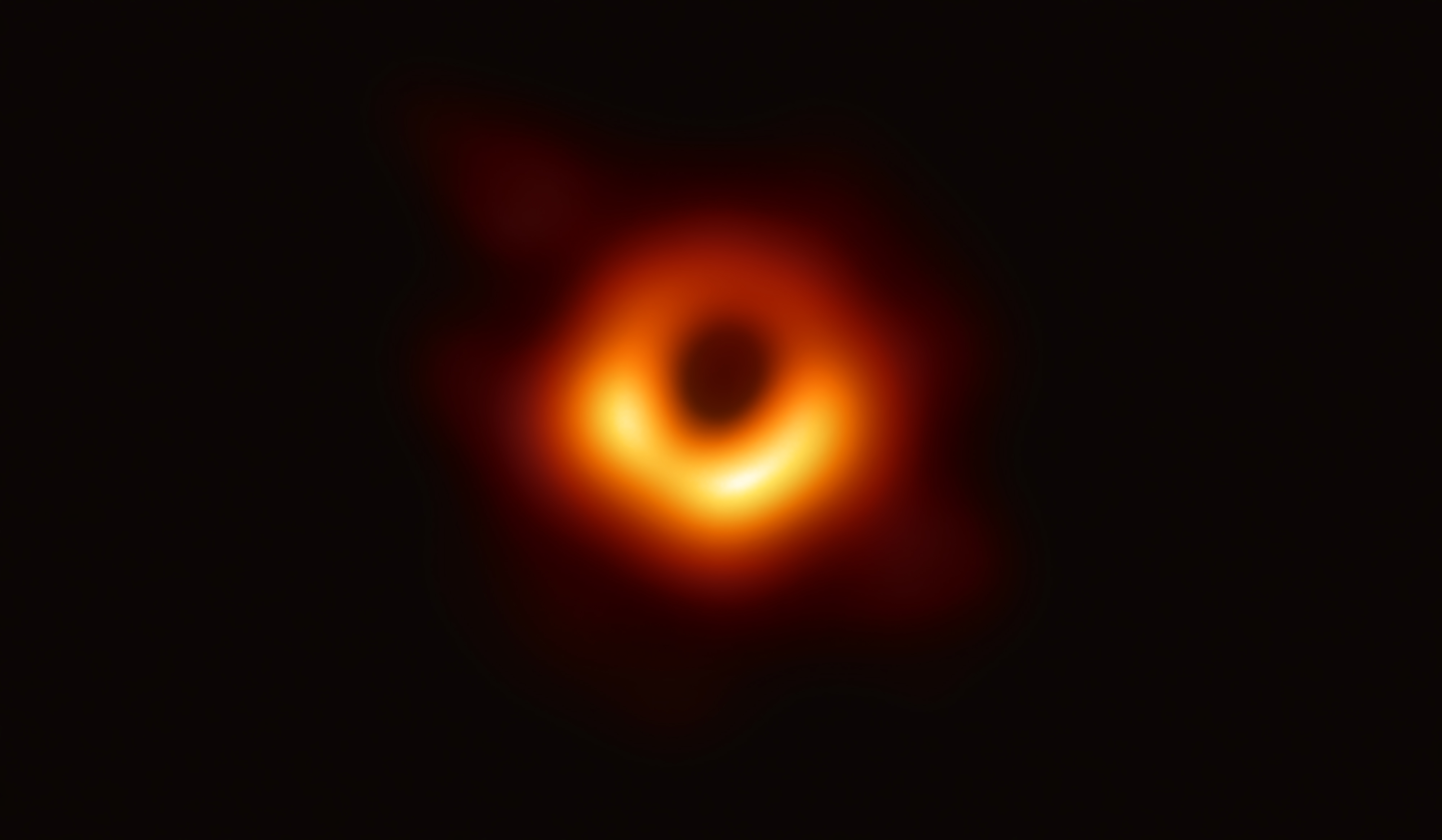Not what it seems
Seeing a black hole is a reminder that the universe is much stranger than we think


A free daily email with the biggest news stories of the day – and the best features from TheWeek.com
You are now subscribed
Your newsletter sign-up was successful
This is the editor’s letter in the current issue of The Week magazine.
In The Week's office, the country's major newspapers are laid out in a line each day along a counter. One day last week, the same spooky image stared out from every front page, like a cosmic eyeball — the first-ever "photo" of a black hole. It's an achievement once thought impossible, given that black holes exert such monstrous gravity that they swallow light itself. To see the unseeable, it took 200 scientists on four continents using eight radio telescopes, synchronized so that they functioned like one giant radio dish the size of Earth. Even Einstein, whose theories predicted black holes, initially doubted something so outlandish could exist. Now astronomers have captured what one looks like: a radiant orange-red ring of superheated gas swirling around an ominous void — the "event horizon" — where all matter and energy is sucked into no-one-knows-where.
The value of feats like this are not entirely scientific: They remind us that human beings are not always petty, small, and mean, and that at our collaborative best, Homo sapiens is capable of magnificent things. Over the last century, science has shown that our universe is a far stranger place than our everyday experience would suggest. Space itself is curved and warped by mass. Time slows down on an object the faster it travels. Electrons act both as particles and waves. "Entangled" particles seem to instantly know and react to what happens to their partner across vast distances. At the quantum level, there is no empty space: Particles constantly pop in and out of existence, creating an ephemeral quantum "foam." At the other end of the scale, there are least two trillion galaxies in the universe, each containing billions of stars and probably more than a few planets where intelligent life has evolved and is puzzling over the same questions as we are. The more we discover, the more it becomes clear that our certainties, whatever they may be, are built on illusions. We live in a great mystery.
The Week
Escape your echo chamber. Get the facts behind the news, plus analysis from multiple perspectives.

Sign up for The Week's Free Newsletters
From our morning news briefing to a weekly Good News Newsletter, get the best of The Week delivered directly to your inbox.
From our morning news briefing to a weekly Good News Newsletter, get the best of The Week delivered directly to your inbox.
A free daily email with the biggest news stories of the day – and the best features from TheWeek.com
William Falk is editor-in-chief of The Week, and has held that role since the magazine's first issue in 2001. He has previously been a reporter, columnist, and editor at the Gannett Westchester Newspapers and at Newsday, where he was part of two reporting teams that won Pulitzer Prizes.
-
 The EU’s war on fast fashion
The EU’s war on fast fashionIn the Spotlight Bloc launches investigation into Shein over sale of weapons and ‘childlike’ sex dolls, alongside efforts to tax e-commerce giants and combat textile waste
-
 How to Get to Heaven from Belfast: a ‘highly entertaining ride’
How to Get to Heaven from Belfast: a ‘highly entertaining ride’The Week Recommends Mystery-comedy from the creator of Derry Girls should be ‘your new binge-watch’
-
 The 8 best TV shows of the 1960s
The 8 best TV shows of the 1960sThe standout shows of this decade take viewers from outer space to the Wild West
-
 Epstein files topple law CEO, roil UK government
Epstein files topple law CEO, roil UK governmentSpeed Read Peter Mandelson, Britain’s former ambassador to the US, is caught up in the scandal
-
 Iran and US prepare to meet after skirmishes
Iran and US prepare to meet after skirmishesSpeed Read The incident comes amid heightened tensions in the Middle East
-
 Israel retrieves final hostage’s body from Gaza
Israel retrieves final hostage’s body from GazaSpeed Read The 24-year-old police officer was killed during the initial Hamas attack
-
 China’s Xi targets top general in growing purge
China’s Xi targets top general in growing purgeSpeed Read Zhang Youxia is being investigated over ‘grave violations’ of the law
-
 Panama and Canada are negotiating over a crucial copper mine
Panama and Canada are negotiating over a crucial copper mineIn the Spotlight Panama is set to make a final decision on the mine this summer
-
 Why Greenland’s natural resources are nearly impossible to mine
Why Greenland’s natural resources are nearly impossible to mineThe Explainer The country’s natural landscape makes the task extremely difficult
-
 Iran cuts internet as protests escalate
Iran cuts internet as protests escalateSpeed Reada Government buildings across the country have been set on fire
-
 US nabs ‘shadow’ tanker claimed by Russia
US nabs ‘shadow’ tanker claimed by RussiaSpeed Read The ship was one of two vessels seized by the US military
